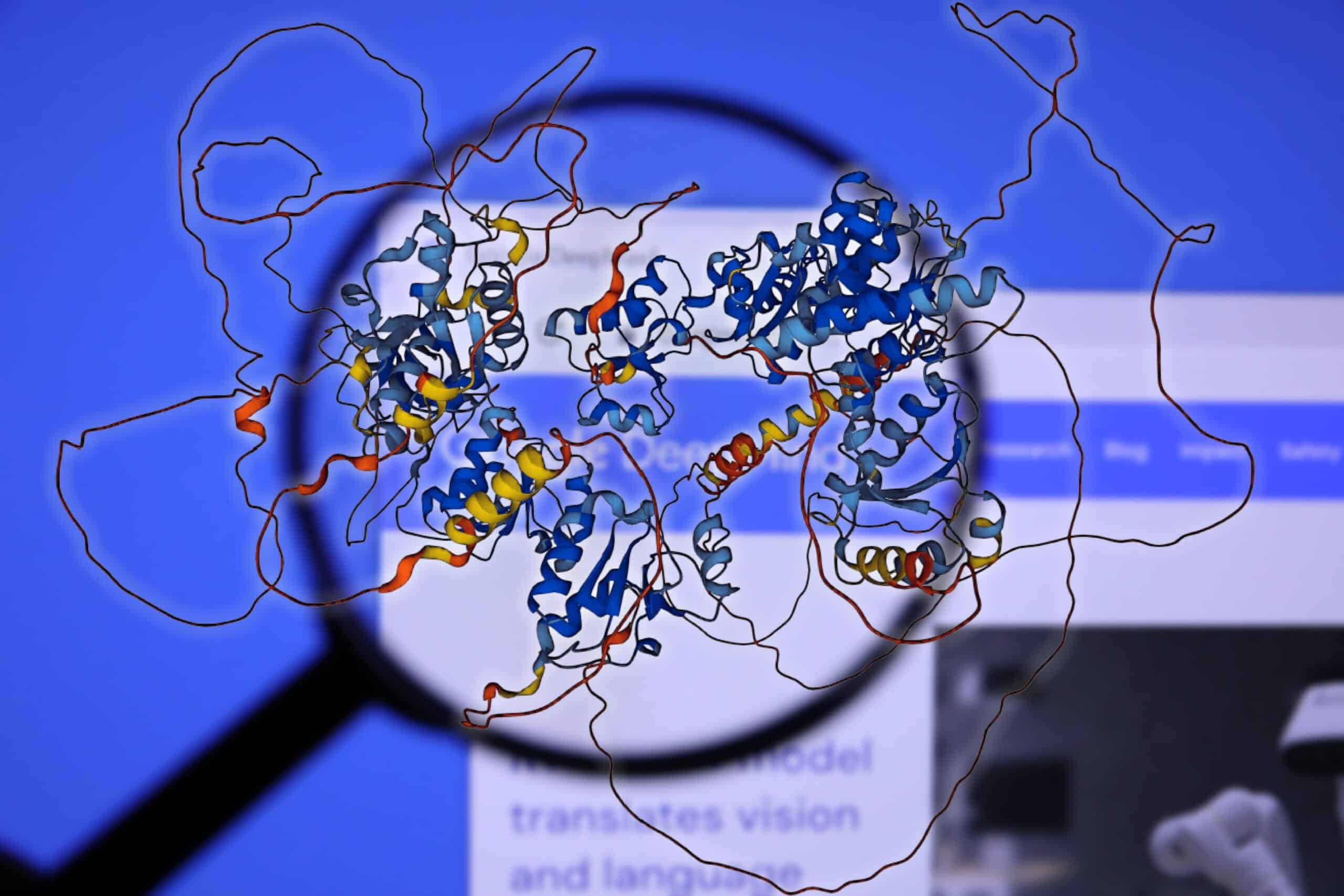Each year, the Nobel Prizes celebrate some of the world’s most influential scientific breakthroughs. Previous winners include renowned physicists, Marie Curie and Albert Einstein, whose discoveries made unquantifiable contributions to the realms of radioactivity and theoretical physics.
In a groundbreaking announcement, the 2024 Chemistry Nobel Prize was awarded to two researchers at Google’s AI research lab, DeepMind, for the creation of AlphaFold – an AI-powered protein structure prediction database. AlphaFold rattled the scientific field for two reasons. Firstly, its win marks the first time AI has received such a highly regarded award, and secondly, its protein predicting software has solved the 50-year long mystery of ‘protein-folding,’ which has grappled molecular scientists.
In a nutshell, AlphaFold uses deep-learning technology to accurately predict a protein’s 3D structure based on its amino acid sequence. Proteins generally consist of 20 amino acids which fold to form alpha-helix (coils) and beta-pleated sheet (pleated strands) structures. These unstable structures synthesise and fold into a more ordered, 3D structure which makes the protein fully functioning. Protein molecules perform many essential functions in the human body such as insulin, which is responsible for regulating blood sugar levels.
With the astronomical number of possible configurations a protein could fold into, known as Levinthal’s Paradox, scientists have had to rely on laborious and resource-intensive methods of X-ray crystallography and nuclear magnetic methods to build a picture of a single protein’s 3D shape, which can take years. Even then, trial and error was still the most used clinical method for drug development as knowledge of targeted protein binding sites was limited.
In just 18 months, AlphaFold expanded the protein structure database from under 1 million to 200 million, cataloguing almost every protein known to science. More than 500,000 researchers from 190 countries have used AlphaFold’s database thus far – truly revolutionising the field of molecular science. Its impact has been nothing short of transformative, as shown below:
Researchers at the University of Toronto have harnessed the protein database to develop a new drug to treat liver cancer. The program identified a new potential target for treating the disease, which led researchers to develop a new molecule in just 30 days.
Vaccine development has felt AlphaFold’s catalytic power as researchers at the University of Oxford used the database to solve the structure of a malaria parasite following years of inconclusive experiments. In turn, a malaria vaccine is currently in the process of development – successfully passing its first phase of clinical trialling as of 2022.
Hope continues as AlphaFold unveils insights into the mechanisms of protein binding that causes Huntington’s disease, a genetic neurodegenerative brain disorder. Scientists have been using protein analysis to study the binding interactions involved, which has the potential to aid targeted drug developments.
AlphaFold’s profound and far-reaching success shows promise for treating boundless diseases which have long plagued sufferers and signifies a new, hopeful era for artificial intelligence in science.









